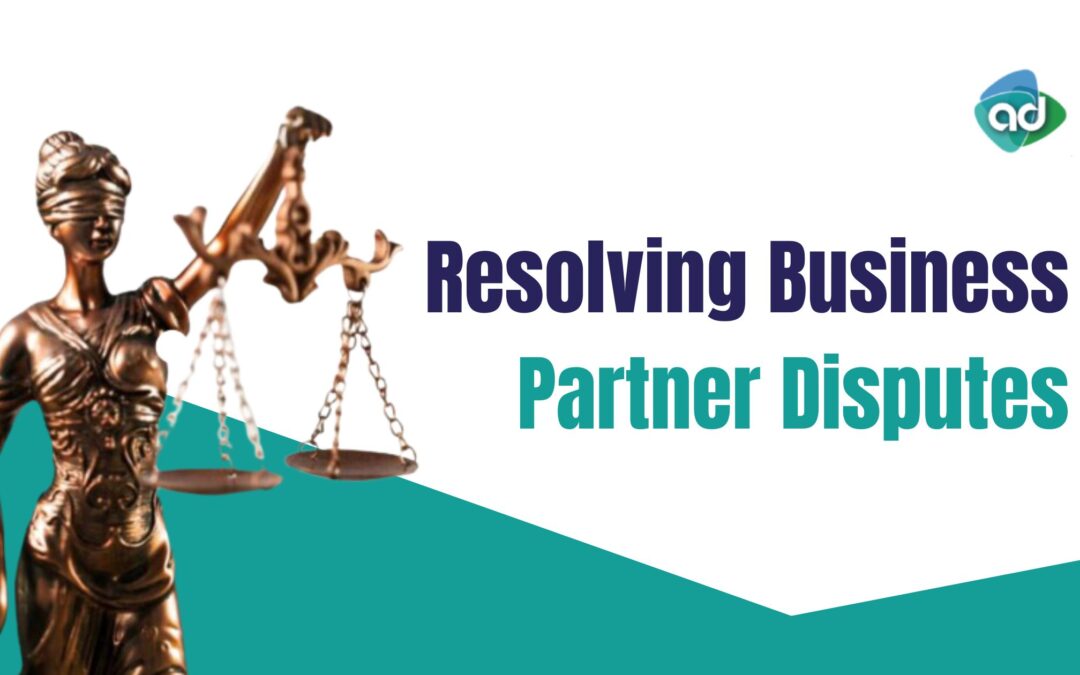Disputes with business partners may threaten to upend the stability of your company and put additional strain on professional relationships. Understanding how to defuse and settle such conflicts effectively can make much difference in maintaining a healthy business environment. In this blog post, we’ll explore practical strategies for handling disputes with your business partners and offer legal insights to help you navigate these challenges smoothly.
Conflicts within a business venture are almost inevitable. Business disputes between partners, whether they concern the vision for the company, finances, or management styles, create significant obstacles. It is fundamental that the resolutions between the parties involved are fast and effective to preserve your business’s integrity. You can resolve disputes using strategic approaches that consider all your legal options in ways that protect your interests and build professional harmony.
The intention here is to provide an overview of the process involved in managing and resolving disputes with business partners: the key strategies in addressing conflict, the role of adequate communication and documentation, and even legal remedies open to a business partner who finds themselves at a dispute. By the end of this post, you will have a solid foundation upon which to handle disputes in a way that causes minimal disruption and encourages a good working relationship.
Establish Clear Lines of Communication
Clear, open, honest communication is the key to any resolution. Clear lines of communication between business partners will always avoid misunderstandings blurring into major business conflicts. Regular meetings and open discussions of all expectations and roles in a partnership are non-negotiable factors in maintaining a good working relationship.
When a conflict has arisen, dealing with it directly and immediately may prevent it from growing into a bigger problem. Make sure to go into the discussions with a co-operative rather than combative attitude. Listen actively to the concerns of your partner and express your own views calmly and respectfully. This not only helps solve the issue at hand but also builds a level of trust on which to base the resolution of future disputes.
Document Everything
Maintaining clear records of all business transactions, decisions, and communications is tantamount to settling and solving disputes. It provides a good reference tool in case of disagreements: it sums up what was agreed upon and identifies where misunderstanding or breach might have taken place.
The value of having these documents in place may crystallize in the event that a conflict develops into a serious dispute necessitating a legal solution. The contracts, meeting notes, emails, and other documents can be used for reference and serve as testimony to the agreed-upon terms. Documentation does not serve one purpose alone, which is to resolve a crisis, but it also goes toward preventing it in the first place by keeping all the partners in tune.
Seek Mediation or Arbitration
When direct negotiations do not lead to a resolution, other useful alternatives to consider are mediation or arbitration. In mediation, a neutral third party facilitates the agreement by guiding the settlement discussion and suggesting a resolution to the parties; arbitration involves a neutral third party who makes a binding decision based on the evidence brought to court.
Both mediation and arbitration offer advantages over traditional litigation, including quicker resolution and less formality. These methods can be particularly beneficial in preserving business relationships, as they focus on finding mutually agreeable solutions rather than assigning blame. Many business partnerships include mediation or arbitration clauses in their business contracts to streamline the process if disputes arise.
Examine and Adjust the Partnership Agreements
Conflicts always tend to be based on vaguenesses or loopholes in the partnership agreement. Frequent review of the partnership agreement shall obviate friction, since it would fully define the rights, duties, and procedures to be followed by each partner in resolving disputes. A proper partnership agreement will include clauses on the manner of dealing with disputes: negotiation, mediation, arbitration, or litigation. It will also deal with how decisions can be made, how profits and losses will be distributed, and what happens if a partner wants to extricate him/herself from the business. Address potential agreement snags beforehand in your agreement to lessen disagreements, and point out a smoother resolution process should your impasse actually end up in disputes.
Conclusion:
Managing or resolving differences with business partners requires good formulation in communication, good documentation, and great legal maneuver. Proper communication should be established, proven records and accounts made, and mediation or arbitration used to take care of the conflicts without affecting the business or the relationship with your business partners. Regularly reviewing and revising the partnership agreement will help avoid misunderstanding and the development of the proper frame for resolving issues.
Ultimately, managing disputes in a proactive and informed way has the potential not only to resolve conflicts but to strengthen your business relationships. With the insights of these strategies in mind, be in a better position to navigate challenges and still maintain a healthy and successful partnership.
